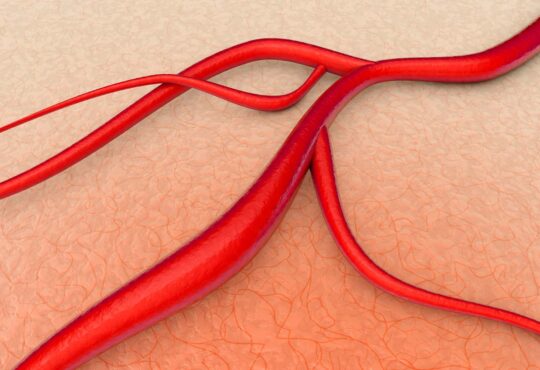
You may feel better by increasing the health of your gut microbiome.
Not too many decades ago, anyone suggesting that aspects of our mental and physical health were dependent upon the 70-80 trillion bacteria living in our digestive tracts would have drawn screams of outrage from both psychologists and internal medicine specialists.
Today, we know better.
The gut-brain axis, as it’s now known, affects us in many ways, for good and ill – physical, mental, and emotional.
We have nerve centers in our digestive tract – and our gut bacteria release neuromodulators – and manage our immune systems.
If you find it difficult to feel generally good on a normal day, an imbalance of the healthy and unhealthy bacteria in your gut may be just as much to blame as whatever circumstances in your life you don’t like. And may help account for why some people who seem to have everything – wealth, fame & love – are unhappy despite living lifestyles most of us envy.
If you often come down with infections, the same kind of imbalance may be weakening your immune system.
(Obviously, this is not personalized advice. I don’t know you or your life. If you are depressed or anxious, get qualified professional help. However, no matter whatever else is wrong with you or your life, and what other treatments you receive, improving your gut health can’t hurt – and might well help – you. That’s been proven by numerous studies.)
Where Do We Get Our Gut Bacteria?
Two places:
1. From our mothers during the process of birth. Vaginal delivery is better than a C-section.
And from childhood. Breastfeeding is better than formula. Children exposed to the outdoors, dirt, other people, and animals tend to have a higher and healthier diversity of gut bacteria even later in life.
Unfortunately, we can’t do anything to change these.
2. From the foods we eat – probiotics.
And we encourage their growth by the amount and variety of fiber in the foods we eat – prebiotics.
Antibiotics tend to wipe out gut bacteria indiscriminately, so they should be used only when necessary – and doctors today are more aware of the dangers of overprescribing antibiotics than they were in the past.
What About Fasting?
If we’re not eating, we’re not feeding our gut bacteria, so isn’t that unhealthy?
During fasting, your body actually does start digesting parts of your digestive tract – depending on how long you go without eating.
It thins out the mucosal lining, and many bacteria do die.
However, once you refeed, your bacteria return, stronger and healthier than ever.
What About Probiotic Supplements?
They may help you re-establish a healthy gut after it’s been damaged by illness, antibiotics, extreme stress, or travel.
However, available supplements don’t contain the full range, kind and variety of bacteria you need. Your gut microbiome begins in your mouth, and the healthy species are different for every section: mouth, throat, stomach, upper intestine, and so on all the way to the end. They’re all separate, distinct environments, and support different varieties – though most are in the colon.
Plus, once you swallow the capsule, you must feed them plenty of fiber, or they starve.
Gut Health has Two Measures
1. Diversity of bacteria species
2. Predominance of “good” bacteria over “bad” bacteria
But is Diversity “Good” If It Includes “Bad” Bacteria?
Almost everyone agrees gut diversity is healthy, but it isn’t that simple. Some bacteria help us digest food, feel good, and strengthen our immune systems.
Some bacteria do exactly the opposite, plus cause bloating. The more types of them we have, the worse our gut and overall health.
What’s Your Enterotype?
We know of around 1,000 species of bacteria that inhabit our digestive systems.
We each have our own unique profile. Fortunately, however, the known species cluster into two enterotypes:
* Bacteroides
* Prevotella
Like other living things, they grow and flourish where the living is good. Which type dominates in your colon depends on which one you encourage through the food you eat.
This has been extensively studied. Scientists have created large, complicated heatmaps for every component of food you can think of, and many more, asking does it favor Bacteroides or Prevotella?
The conclusion is simple:
Saturated fat, cholesterol, animal protein, and animal foods, in general, encourage the growth of Bacteroides bacteria.
Carbohydrates, antioxidants, fiber, and plant foods, in general, encourage the growth of the Prevotella species.
According to a study published in Scientific Reports in 2020, positive emotional states are highly associated with the prevalence of Prevotella in the gut – and of a diversity of Prevotella.
The diversity of Bacteroides species was NOT associated with good emotional health.
Depression and anxiety are associated with poor digestion, gas, and bloating – signs of dysbiosis. That’s where harmful bacteria outnumber good bacteria.
How to Quickly Change Your Enterotype
The bacteria in our guts have short lifetimes. They reproduce and die rapidly. Therefore, your gut microme responds quickly to changes in your diet. It begins in just a few hours after a meal and is significant in just one day.
If your emotional and immune health need improvement – especially if you know you eat a high animal-food diet – simply eat lots more plants, to push the balance away from Bacteroides and more toward Prevotella.
According to researchers at the American Gut Project, people who eat over 30 different types of plants in a week have more bacterial diversity than those who eat 10 or less.
According to a study done by Justin Sonneberg, eating four to six servings of fermented foods every day increases bacterial diversity more than eating a high fiber diet.
My Opinion
Let’s face it: almost nobody is going to eat four to six servings of fermented foods every day, except Koreans (who do eat kimchi morning, noon and night, and that volume increases their risk of stomach cancer.)
And you must make sure the food you eat contains living, active bacteria. If it’s room-temperature sauerkraut, pickles, or kimchi, it won’t. You must buy them while refrigerated. Sugary, processed commercial brands of yogurt don’t contain live bacteria. You have to find plain, unprocessed yogurt.
But you can add fresh sauerkraut or kimchi to your diet nearly every day – and ALSO eat a large amount and variety of plant foods for their high fiber content – to encourage the beneficial Prevotella rather than the harmful Bacteroides.
Like so many things people today argue over – it’s really not an either/or decision. Eat fermented foods AND high-fiber foods.
https://www.youtube.com/watch?v=15R2pMqU2ok&t=4165s
https://www.youtube.com/watch?v=KtF6VsayNPw
https://www.wcrf-uk.org/our-blog/could-you-eat-30-plant-based-foods-each-week/#:~:text=Researchers%20at%20the%20American%20Gut,called%20short%20chain%20fatty%20acids.
https://www.youtube.com/watch?v=5Ipz3lBhQGo
https://www.annualreviews.org/doi/abs/10.1146/annurev-neuro-091619-022657?journalCode=neuro
https://www.nature.com/articles/s41598-020-77673-z
https://med.stanford.edu/news/all-news/2021/07/fermented-food-diet-increases-microbiome-diversity-lowers-inflammation.html
https://www.sciencedirect.com/science/article/abs/pii/S0092867421007546







